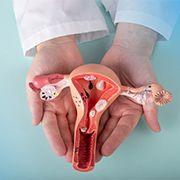Piles and Pregnancy: Causes, Treatment, and Prevention
In This Article
Piles and Pregnancy: Causes, Treatment, and Prevention
Prathibha
Updated on March 15, 2025
Medically verified by Dr. Arya
Fact checked by Dr. Fazeela

Wellness
10 minutes
Causes of Piles During Pregnancy
Piles during pregnancy occur due to various factors, including
- Increased Pressure on Blood Vessels: As the uterus expands, it exerts pressure on the veins in the rectum, leading to swelling.
- Hormonal Changes: Increased progesterone levels relax the walls of blood vessels, making them prone to swelling.
- Constipation: A common pregnancy issue that strains the rectal veins, leading to hemorrhoids.
- Weight Gain: Additional body weight puts extra strain on pelvic veins, increasing the risk of piles.
- Reduced Physical Activity: Decreased movement slows digestion and circulation, contributing to hemorrhoid formation.
Symptoms of Piles in Pregnancy
The symptoms of piles during pregnancy vary depending on their severity. Common symptoms include
1.Itching and Discomfort in the Anus: A frequent irritation or burning sensation around the anal region.
2. Pain and Swelling: Swollen veins cause pain, especially while sitting or passing stools.
3. Bleeding During Bowel Movements: Bright red blood in stool or on toilet paper.
4. Lump Near the Anus: In external piles, a small painful lump may form outside the anus.
5. Difficulty in Passing Stools: A feeling of incomplete evacuation due to swelling.
How to Treat Piles During Pregnancy
Managing piles during pregnancy requires a combination of lifestyle changes, medical treatments, and home remedies.
Home Remedies for Piles in Pregnancy
- Increase Fiber Intake: Eating fiber-rich foods like fruits, vegetables, and whole grains helps prevent constipation.
- Stay Hydrated: Drinking at least 8-10 glasses of water daily softens stools and reduces straining.
- Warm Sitz Baths: Soaking in warm water for 15 minutes relieves pain and soothes irritation.
- Cold Compress: Applying an ice pack to the affected area reduces swelling and discomfort.
- Maintain Proper Hygiene: Keeping the anal area clean and dry prevents infections and further irritation.
Medical Treatment Options
If home remedies do not provide relief, consulting a doctor is recommended. Some treatment options include
1. Topical Ointments and Creams: Safe, pregnancy-friendly creams help reduce inflammation and pain.
2. Stool Softeners: Helps ease bowel movements without straining.
3. Pain Relievers: Only prescribed medications should be used to manage pain.
4. Minimally Invasive Procedures: In severe cases, treatments like rubber band ligation or sclerotherapy may be recommended.
 10mint
10mintSexual Health Matters: How To Maintain Your Sexual Health ?
 10mint
10mintYour Guide to Sexual Health Screening and Preventive Measures
 10 mints
10 mintsSTDs in Women: Comprehensive Guide on Symptoms and Treatments
Get a Callback Now
Exercises to Prevent Piles in Pregnancy
Regular physical activity helps improve digestion and circulation, reducing the risk of hemorrhoids.
- Kegel Exercises: Strengthens pelvic floor muscles, improving blood circulation in the rectal area.
- Walking: A simple yet effective way to prevent constipation and maintain healthy blood flow.
- Prenatal Yoga: Gentle yoga poses help improve digestion and relieve pressure on veins.
- Squats: Encourages better bowel movements by naturally aligning the rectum.
When to See a Doctor for Piles During Pregnancy
While mild piles can be managed at home, severe cases require medical attention. Consult a doctor if
- There is excessive bleeding from the rectum.
- Piles cause severe pain and interfere with daily activities.
- No improvement is seen despite using home remedies and medications.
- Signs of infection such as pus or fever appear.
Hemorrhoids in pregnancy can be discomforting, but with the right approach, they can be effectively managed. Maintaining a healthy lifestyle, practicing good hygiene, and seeking medical advice when necessary can ensure a smoother pregnancy journey.
Mykare Health provides access to top hospitals with expert doctors, ensuring the right pregnancy piles treatment options for managing piles effectively during pregnancy. If you’re experiencing severe Piles symptoms in pregnancy, consult a specialist for the best course of action.
FAQs
1. What causes piles in pregnancy?
Piles occur due to increased pressure on the rectal veins, hormonal changes, constipation, and weight gain during pregnancy.
2. Are piles common during pregnancy?
Yes, piles are quite common in pregnancy, affecting many women due to physical and hormonal changes.
3. What are the symptoms of piles during pregnancy?
Symptoms include itching, swelling, pain, rectal bleeding, and difficulty in passing stools.
4. Is it safe to treat piles while pregnant?
Yes, several safe treatment options, including home remedies and pregnancy-friendly medications, can help manage piles.
5. What are some home remedies for piles during pregnancy?
Increasing fiber intake, staying hydrated, using sitz baths, applying cold compresses, and practicing proper hygiene can help alleviate symptoms.
Piles are common during pregnancy due to hormonal changes, increased pressure on veins, and constipation.
Symptoms include itching, swelling, pain, and rectal bleeding.
Home remedies like fiber-rich diets, hydration, and sitz baths can provide relief.
Exercise plays a crucial role in preventing and managing piles.
Medical treatments such as ointments, stool softeners, and minimally invasive procedures can be considered in severe cases.
Consult a doctor if symptoms worsen, excessive bleeding occurs, or signs of infection appear.
Source Links
Piles in pregnancy - NHS
Hemorrhoids During Pregnancy - Cleveland Clinic
What to Know About Pregnancy Hemorrhoids - Healthline

